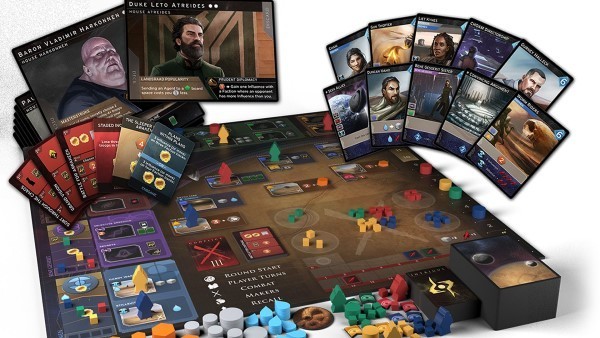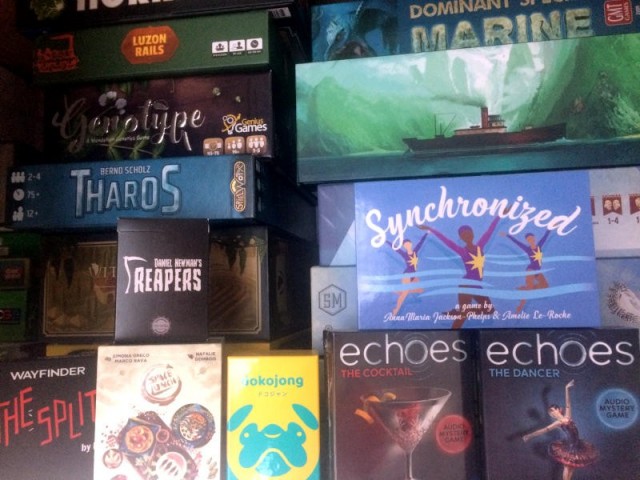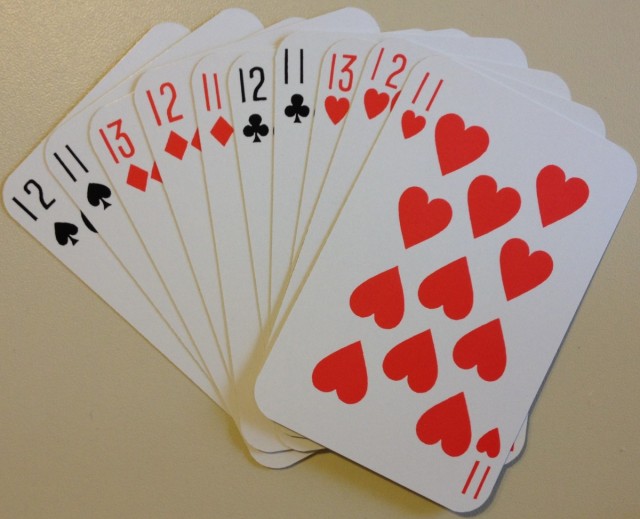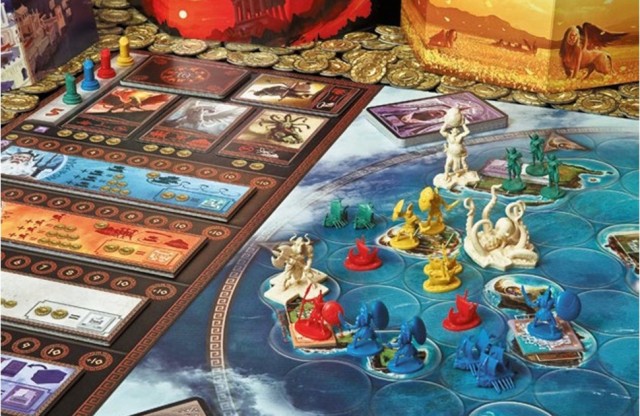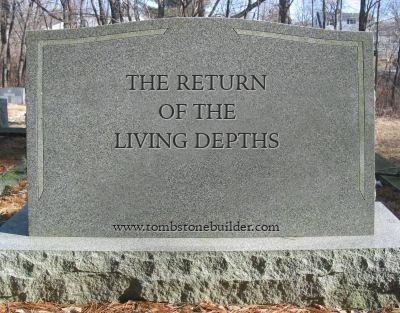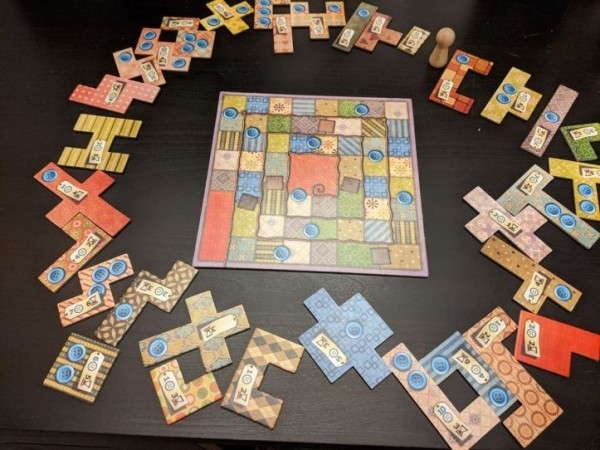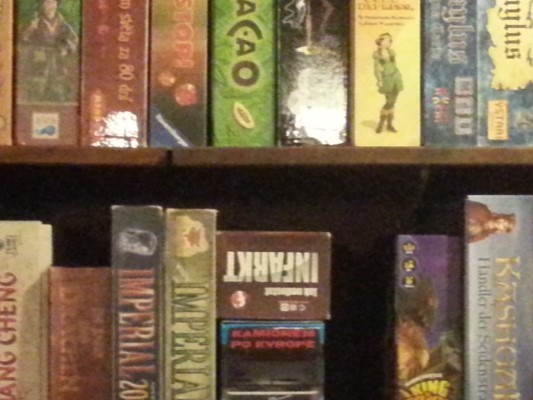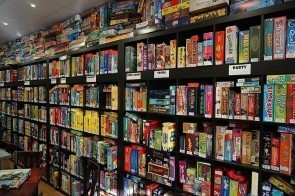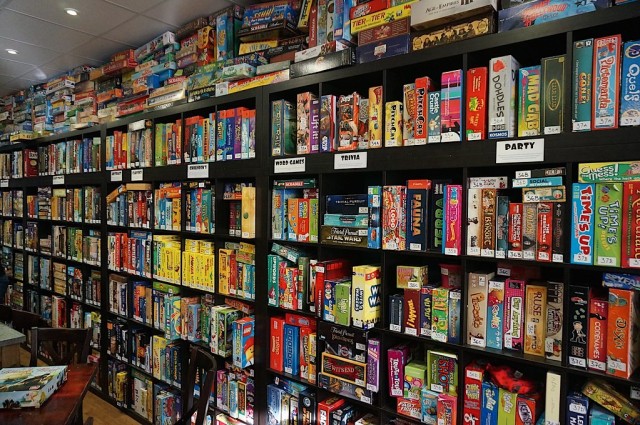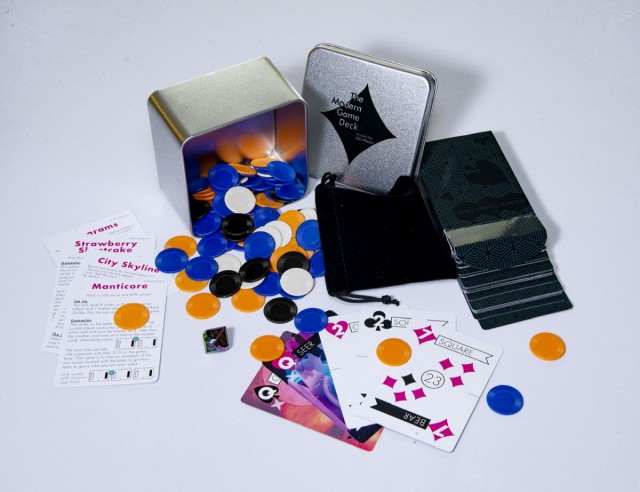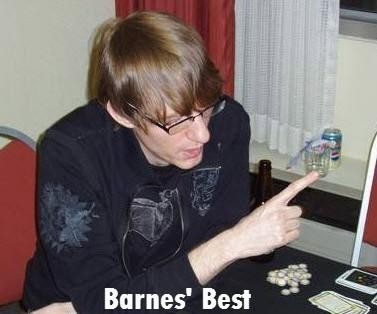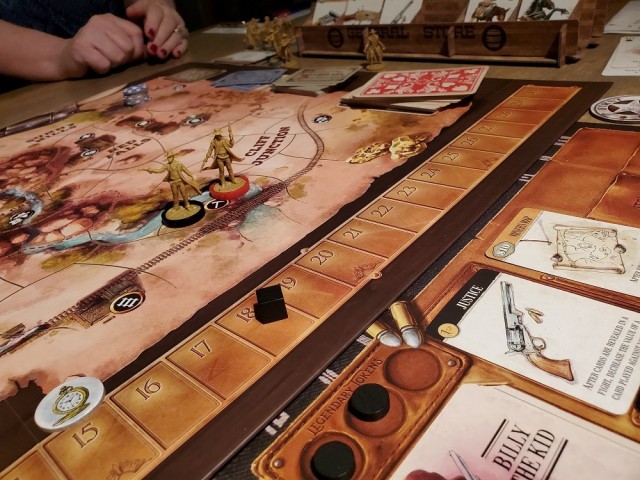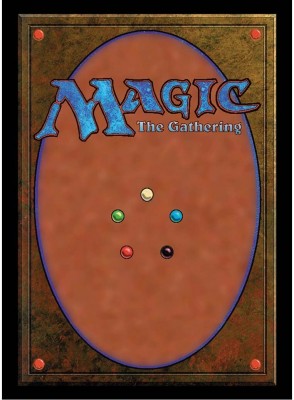Since I usually clutter up any thread here about any CCG with all my thoughts about how to play Magic on the cheap, and since I get PMs for advice every so often, I thought it'd be a good idea to do a write up on all the ways to play Magic for cheap so that I never have to do it again.
BEGINNING PLAYERS - EASY INTRO
If you've never played Magic before, probably the best thing to do to start is to buy a complete set of the preconstructed decks, aka Intro Decks, for the latest Core Set ($30-$40). These cards will be simpler than most, and I think those precons include a summary of the rules as well.
Problem is, simpler can definitely mean "more boring", so it's good to think of this as only an intro. Think of how everyone always complains about the beginner scenarios in scenario-based games like Earth Reborn and Last Night on Earth. If you think you're an experienced enough gamer that you can skip a few steps, then you have a lot more options.
That said, there are definitely a lot more decisions to be made with even the simplest cards than all those people who think "Magic has no playskill" believe. One thing to keep in mind as a new player, or even as a player who hasn't played since you were a dumb kid, is that Magic is a lot about sequencing. The order you play your cards, what cards you think you need to get down NOW versus later, whether to save cards for the long game or use them for short-term gain: that's a big chunk of playskill. Most people who play Magic, even those who have been playing for years, simply play whatever cards they have in their hand whenever they can, and think that the game plays itself. This is, obviously, not a winning strategy, but when you're playing against like-minded players, it can be hard to see that.
BEGINNING PLAYERS, REDUX
That said, the most fun part of Magic playskill is that you have to be able to adapt to situations you've never encountered before, and figure out creative uses for cards you've never tried before. For that to happen, though, you need to be playing with more complex cards. So where do you start?
One place to start is: more Intro Decks ($30-$40 for a set)! But this time, from an expansion set, instead of from a core set. These will be a lot more interesting than the core set precons, as they'll be more focused around a theme. Personally, though, I'm not a big fan of the intro decks for anything beyond introducing someone to the game; I don't think they have quite enough replayability, as they are literally built in order to convince you to buy more cards. The other problem with them is that, since they are so weak, when one Intro deck gets out its bomb rare vs. the other, it can be difficult to come back, leading to lopsided games.
If you do want to stick with storebought preconstructed decks, though, then by far the best of these are the Duel Decks ($10-$25). This is a series of pairs of decks that are made to play against each other. They're full of more complex interactions, well-balanced against each other, and they're complete: unlike the intro decks, there's nothing held out just to convince you to buy more cards. Coming out soon is Duel Decks: Knights vs. Dragons, which I'm skeptical of, but the last several pairs of decks were great, including Phyrexia vs. the Coalition and Tezzeret vs. Elspeth. If you want highly replayable preconstructed decks, these are the way to go.
If you want a LOT of decks for VERY cheap, then I recommend buying a common playset (that's four of each) of either Lorwyn (cheerful celtic fantasy, all about creature type), Shadowmoor (the dark side of Lorwyn, all about hybrid multicolor cards and weird counter tricks), Shards of Alara (5 separate three-color worlds each with their own theme), Zendikar (all about lands, traps and adventure), or Scars of Mirrodin (an artifact world being invaded by poison) off of eBay ($10). You'll need a ton of lands too ($5-8, unless you know someone who plays a lot of Magic who'll just give them to you for free). Then, check out the following links:
http://www.wizards.com/magic/magazine/article.aspx?x=mtgcom/daily/cm105
http://www.wizards.com/magic/magazine/article.aspx?x=mtgcom/daily/cm131
http://www.wizards.com/magic/magazine/article.aspx?x=mtg/daily/ftl/10
http://www.wizards.com/magic/magazine/article.aspx?x=mtg/daily/ftl/58
http://www.wizards.com/magic/magazine/article.aspx?x=mtg/daily/ftl/110
Voila - without any deckbuilding on your own, you now have 11-13 decks for $10. Here, the replayability is partly due to just having so many decks to choose from, each very different from the others.
Be aware, though, that when you're playing with nothing but commons, you're missing out a lot. There are a lot of effects that never ever make their way to common. If you want to buy lots of cards for cheap and build your own decks, then I'd recommend at least buying a set of uncommons to go with your playset of commons; that'll open up many more fun and unusual cards. A set of uncommons also only adds $8 to the cost, too, unlike adding the rares.
SO YOU'VE GOT MORE THAN $30
All of the above options are fine, but if you're willing to spend a little more money but don't want to ENDLESSLY spend money, there are some more options, too, all related to cubes.
If you don't know what a cube is: a cube is a fixed box of cards that you randomly make 15-card packs out of and booster draft from. With a cube, you can draft endlessly without having to buy new packs every time you draft. This is especially great because for many, many Magic players, drafting is their absolute favorite way to play Magic. "Sealed deck" play is also possible from some cubes, which is a little less intense than drafting.
The important thing to keep in mind is that any kind of good cube will give you ENDLESS replayability. Keep that in mind when you look at the prices.
There are lots of possible ways to build/buy a cube. One of the cheapest is probably a common/uncommon cube. This is a collection of the absolute best commons and uncommons of all time, one of each. THE high-watermark for this type of cube is Klug's cube:
http://forums.mtgsalvation.com/showpost.php?p=3401649&postcount=1
I'd estimate (haven't gone through and priced it, though) the price of this cube to be around $200, but less than $100 if you proxy up (see below) just a few pricy cards like Force of Will, Berserk, or Wasteland. For really cheap singles like commons or uncommons, I recommend Channelfireball.com . Much as I love Coolstuffinc, they overcharge for cheap singles.
Another relatively cheap possible cube, and the type of the cube that I use all the time, is a set or block cube. This is a complete set of a particular expansion or block of expansions, usually with 2 of each common as well as one of each of everything else. The price for a complete set ranges from $80 for some older sets to $130 for recent sets, with an extra set of commons costing a negligible amount. A complete block will cost around 2.5 times that. If you proxy up (see below) JUST the mythics (which amounts to 16 out of every 250 cards), the price for sets drops down to below 50% of my original quote above.
What you can then do is shuffle up all the commons together and deal out 10-11 into each pack, shuffle up the uncommons and deal 3 into each pack, and randomly take half the mythic rares (if you're using a set with mythics) and shuffle them into the rares and then deal one into each pack. Make as many packs as you want: either three for each person to do a booster draft, or 5-6 for each person to do sealed deck. We've even been playing "super sealed" lately where I deal out double the amount for a normal sealed deck; you can build some wackier decks that way. When you're done, just separate them by commonality and shuffle them up again! Some people also like to use set/block cubes without regards to rarity, just shuffling the whole damn thing together and dealing out 15-card packs; up to you!
The final type of cube, not for the faint of heart, is what usually considered a classic cube: a collection of the all-time greatest Magic cards. This is an incredibly thrilling thing to play with, but unless you're going to use proxies, we're talking about $2000. Unless you want the power 9, which will add a couple more thousand...yeah. But it's totally awesome.
SPEAKING OF PROXIES
Or you can proxy cards. This is kind of a pain-in-the-ass, though, so I wouldn't recommend it for anything other than a classic cube. In which case the website to use is:
Go to a card you want to proxy, like, say:
http://magiccards.info/un/en/233.html
Look in the bottom left-hand corner: it says "Print Proxies". Hit the +1 button, then hit back. Find another card you want to proxy, like
http://magiccards.info/un/en/48.html
Hit +1 again. Keep doing this till you've got all the cards you want to proxy. Finally, hit "print", and it'll print up all the cards you've added to your "proxy cart". At pretty high quality, too. Glue them to basic lands and put them in sleeves and you'll never know the difference. Cost: paper + ink.
CONSTRUCTED ON A BUDGET
Ken B has repeatedly said that he can't stand playing Limited Magic because he loves that feeling of playing with the most finely honed, perfect decks. Personally, while I love Limited the best of all Magic formats (as it has the greatest variety of viable cards), I do get an incredible charge out of playing constructed that is totally different from limited. Too bad constructed decks are so damn expensive.
Except that they don't have to be. First, let's get this out of the way: don't play Standard. Standard is the most popular constructed format, where only the cards from the past couple years are allowed. There are a few problems with this, budget-wise: first of all, any cards you buy for a Standard deck will be unusable in standard in a year or two, so you have to keep selling cards and buying new cards if you want to play Standard. Second of all, since Standard is so popular, its cards are much more expensive than any other similarly common cards.
So what to play? Well, Pauper, where only commons are allowed, is definitely the cheapest constructed format. Good luck finding someone else who has a Pauper deck (edit: see end of article). Commander is really really popular, but I'm not a big fan because I hate playing Magic with more than two players.
My favorite constructed format is Legacy. Legacy is a format where alllllllllmost every Magic card ever printed is allowed. The absolute most expensive and/or powerful cards are banned. There are, however, still tons of really expensive cards, so most legacy decks are really expensive. The fantastic thing is, though, that once you've got a legacy deck, it's yours forever. For the most part, decks that were tournament-worthy several years ago are still just as tournament-worthy, with maybe a few slight adjustments.
Even BETTER news, though, is that there are some really really cheap Legacy decks. The two cheapest very viable Legacy decks are Dredge:
http://sales.starcitygames.com//deckdatabase/displaydeck.php?DeckID=37034
and Affinity:
http://sales.starcitygames.com//deckdatabase/displaydeck.php?DeckID=37135
I bought the Dredge deck for around $100. That is absurdly cheap for a constructed Magic deck that you can play forever at tournaments and places regularly in the top 8 of $5000 tournaments. I think Affinity is even cheaper. These decks are INSANE. They will be completely, completely unlike anything you will play in any of my above suggestions. These decks really show off just how bizarre and wild Magic can get.
Dredge is a deck that doesn't ever need to cast a spell to win.
Affinity is a deck that can sometimes put its entire hand into play on the first turn.
Despite this, you'll lose a lot at first. It'll seem like everyone has an unfair edge against you, 'cause you suck at playing the deck. These are decks that will require a lot of practice to play with, but will reward you well for doing so. You can find lots of articles online focused purely on one of these two decks. You can play these for years at Legacy tournaments and you'll always find something new to learn, always a new situation to respond to that requires you to think about your deck in a different way than you're used to.
THAT's replayability.
There are also lots of other budget constructed decks that haven't necessarily shown a whole lot of high-level results, like my friend's Food Chain Elves deck. Start with the above two if you want something that's a true proven winner.
FINALLY: BEST OF ALL, BUT WITH A CATCH
You can also always just agree with a group of friends on a spending limit for booster packs (I hope it goes without saying to never pay retail for booster packs; Coolstuffinc is great for boosters). Say, each of you will buy $26 worth of packs (that's around 10 packs, and the same price as a Warhammer Invasion Core Set online) of the most recent large expansion (that'd be Scars of Mirrodin right now) to start, and then every time a $7 Warhammer Invasion expansion comes out, you all agree to buy three more packs of whatever the current Magic expansion is instead. Now you're playing Magic for literally the same cost as an LCG.
You might complain "but we don't all have the same cards, we just have random cards, it's unbalanced!" But the thing is, that's actually part of the FUN of CCGs, something that typically gets swept under the floor and ignored: it's actually fun to have asymmetric pools of cards to make decks from. You develop a mini-metagame among friends. Let me tell you, this way of playing Magic (otherwise known as a Sealed League) is a total blast, and might actually be the most fun way to play of all, as this is how we all used to play it as kids.
There's only one problem.
You've got to make a fucking blood oath with each other not to buy any more cards past the agreed amount.
This game can get addictive.
And now maybe I can never post about Magic again.
Edits: I edited the above with a little further explanation about the problems I have with intro decks, the pitfalls of playing with nothing but commons, and more suggestions about when to use proxies to cut drastically down on costs. That said, I did want to add that, although basically no one plays Pauper in real life as a competitive format, it is played competitively online. What this means is that you can get tons of high-powered (relatively) decklists composed of nothing but commons, which you can then buy at a singles shop and have say 8 constructed decks to play against each other. I've never played Pauper, though, so I can't speak for how interesting they are to play. Here's a link about Standard Pauper, and if you dig a little further around using google etc., you'll find Classic Pauper decklists as well:
http://puremtgo.com/articles/recent?uid=PiDave&title=&field_summaryvalue=
Here's another, which I'm putting here mainly because of the discussion below about gameplay, as it's all about a deck called "Stompy", a mono-green aggressive creature deck. And yet the article writer, who has experience playing hundreds of games with just this one deck, says "There is one universal truth regarding the Stompy – it is NOT easy to play."
 Games
Games How to resolve AdBlock issue?
How to resolve AdBlock issue? 